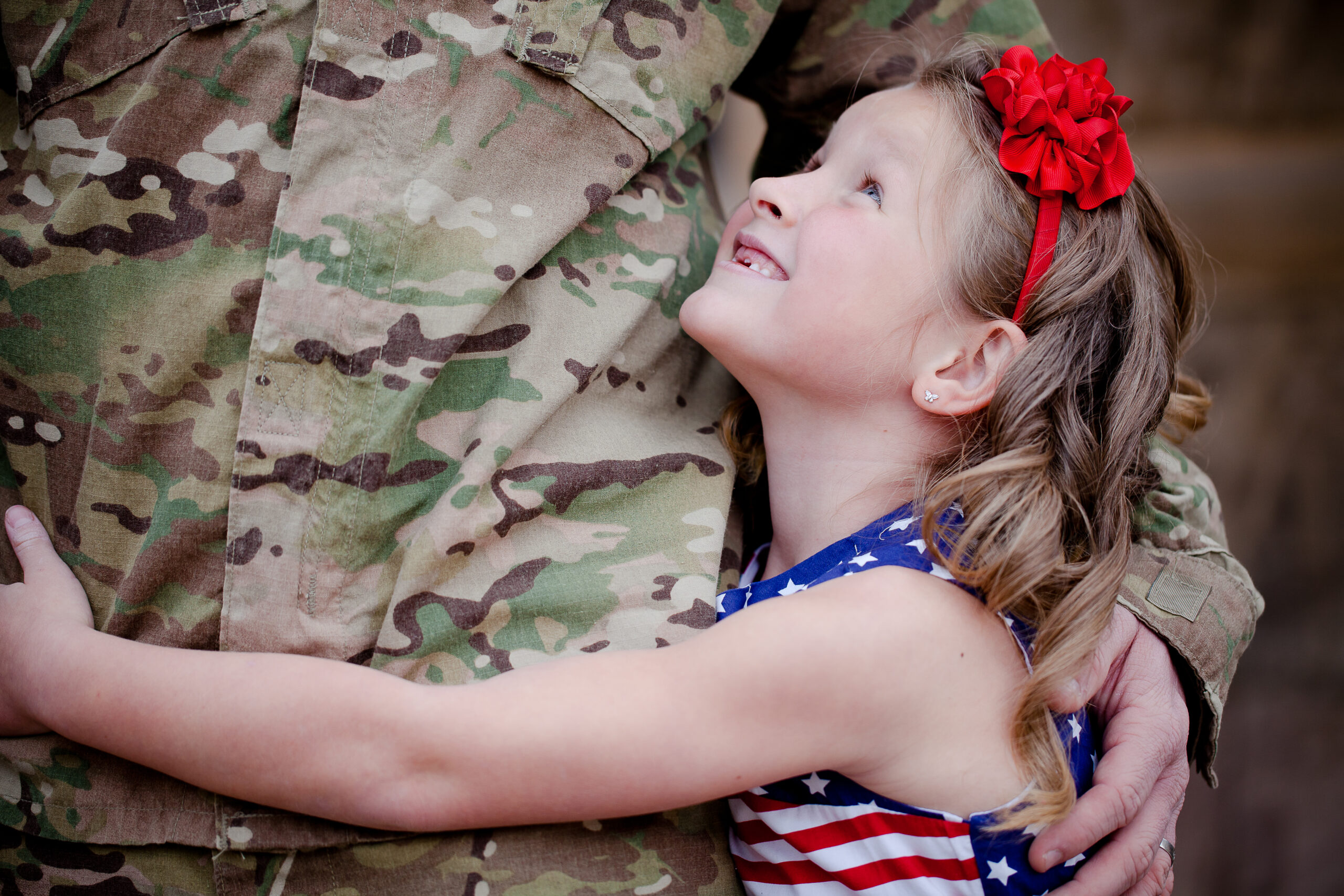Changes, though challenging, are an inevitable part of military life. By creating a supportive environment rooted in communication, patience, and shared experiences, families can not only cope with change but grow closer as a result. Each family member will process these changes differently, with their own individual emotions, expectations, and anxieties.

To navigate periods like PCS moves, deployments or separations, and transition back to civilian life, Ashley Jensen, LMFT, Senior Manager of Clinical Practice at Cohen Veterans Network offers these three key strategies to build strength, deepen connections, and set a positive example for your children.
1. Open and Consistent Communication
Communication is the foundation of stability and trust within a family. During uncertain times, transparency is vital—even when information is limited. Here’s how you can foster open communication in your household:
- Share Regular Updates: Keep your family informed about upcoming changes. Even small updates can help create a sense of stability and reduce anxieties.
- Dedicate Time for Honest Dialogue: Take time to check in as a family. Encourage each member to express their feelings, hopes, and fears without judgment. Allowing children the chance to voice their questions or concerns can help them feel heard and understood.
- Be Honest About Uncertainty: It’s okay to not have all the answers. Sometimes, simply acknowledging a child’s worries and offering them your attention is enough to reassure them that their emotions matter.
2. Practice Patience and Understanding
Adjusting to change is an emotional process. Stress may lead to unexpected behaviors, especially in children. Approach these behaviors with empathy, seeking to understand the underlying causes of distress. Work together as a family to address and resolve conflicts.
- Understand Challenging Behaviors: Behavioral changes in kids, such as withdrawal, acting out, or clinging, often indicate underlying stress. Aim to understand the cause before addressing the behavior.
- Approach Conflict Resolution as a Team: Work collaboratively to solve problems as they arise, letting children know they are valued members of the family team.
- Model Emotional Resilience: By demonstrating healthy coping mechanisms, such as deep breathing or problem-solving, you empower children to adopt similar strategies.
3. Find Joy in the Journey
Amidst the challenges of change, it’s important to prioritize moments of joy and connection. These positive experiences help to balance the stress of change.
- Celebrate Transitions: Approach changes with a spirit of adventure. For example, a relocation can be framed as an exciting chance to explore a new city together.
- Schedule Regular Family Time: Plan activities that bring everyone together, like family game nights, cooking meals as a team, or outdoor outings. These moments help offset the stress and reinforce a sense of togetherness.
If you or someone you know is navigating larger life changes and needs additional guidance, know that you’re not alone. Together, we can face the uncertainties of change with confidence and compassion. Connect with a Cohen Clinic near you to learn more about our high-quality, accessible mental health care options for military children and teens.

Ashley Jensen is a Senior Manager of Clinical Practice at Cohen Veterans Network and Licensed Marriage and Family Therapist in Missouri who has been serving children and families with complex behavioral health diagnosis and relational distress for nearly 15 years. As a clinician, she developed specialties in Trauma-Focused CBT, Solution-Focused Therapy, parent coaching, and other evidence-based practices. Ashley has extensive experience as a Clinical Supervisor and Service Director of non-profit behavioral health services provided via clinic-based settings, home-based wraparound services, and crisis response teams.

